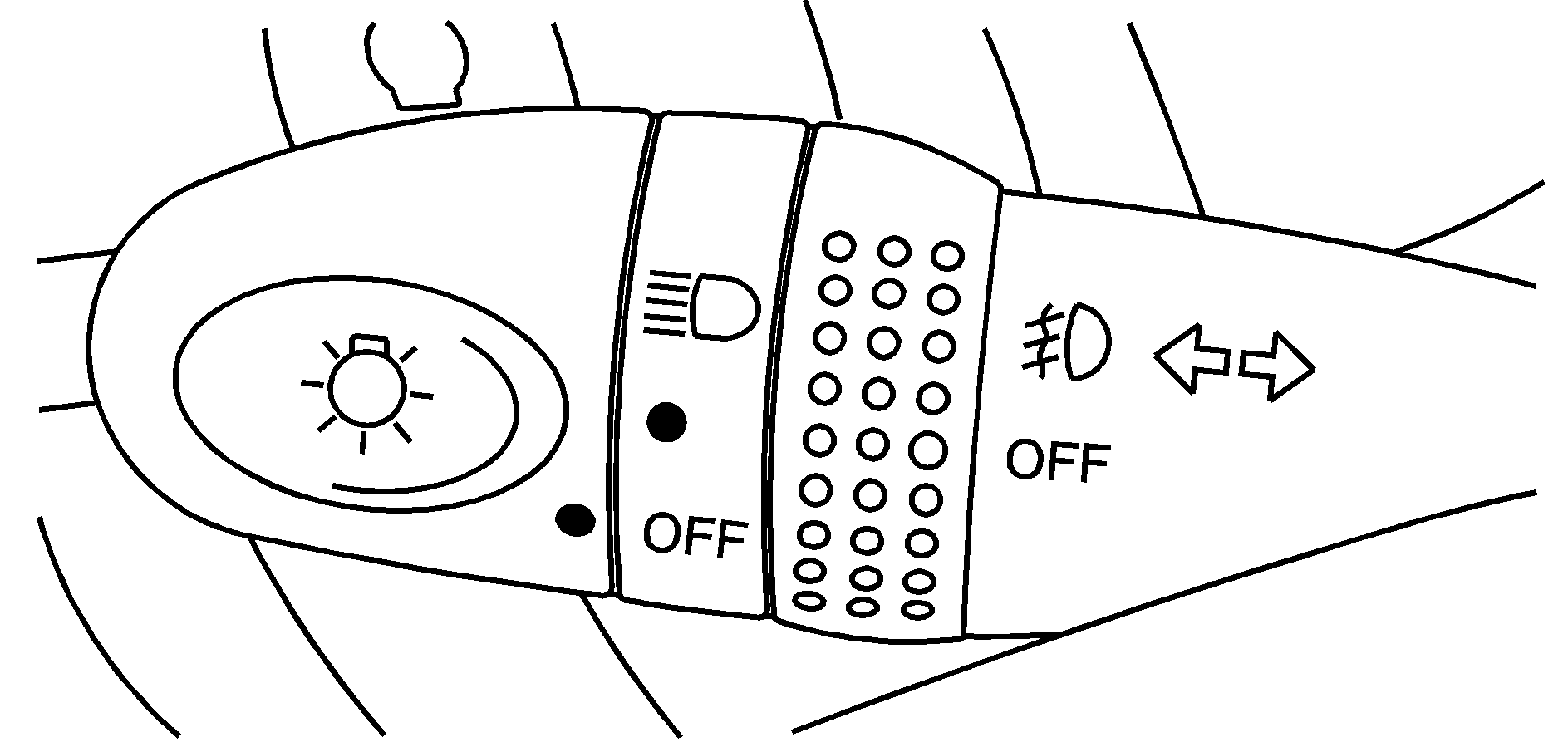
The lever on the left side of the steering column operates the exterior lamps.
(Exterior Lamps): Turn the outside part of the lever with the symbol on it, to operate the lamps. The exterior lamp switch has three positions:OFF: Turning the switch to this position turns off all lamps, except the Daytime Running Lamps (DRL).
(Parking Lamps): Turning the switch to this position turns on the parking lamps together with the following:
| • | Sidemarker Lamps |
| • | Taillamps |
| • | License Plate Lamp |
| • | Instrument Panel Lights |
(Fog Lamps): Turn the band to the fog lamp symbol to turn the fog lamps on. They will come on only when the headlamps are on low beam.
Automatic Headlamp System
Your vehicle is equipped with an automatic light sensor on the top left corner of the instrument panel, so be sure it is not covered or the headlamps will be on continuously.
When it is dark enough outside, your automatic headlamp system will turn on your low-beam headlamps at the normal brightness along with other lamps such as the taillamps, sidemarker, parking lamps and instrument panel lights. The parking brake must be released for the automatic headlamp system to work. This is indicated by the headlamp symbol on your instrument panel cluster.
If you are driving through a parking garage, overcast weather, or a tunnel, the automatic headlamp system may turn on your low-beam headlamps at a normal brightness along with the taillamps, sidemarker, parking lamps and the instrument panel lights. The radio lights will be dimmer, and the instrument panel cluster lights may dim. There will be a delay before the lights will turn on when starting the car at night.
Headlamps On Reminder
If you turn the ignition to LOCK or ACC and leave the lamps on, you'll hear a tone when you open the driver's door.
Daytime Running Lamps
Daytime Running Lamps (DRL) can make it easier for others to see the front of your vehicle during the day. DRL can be helpful in many different driving conditions, but they can be especially helpful in the short periods after dawn and before sunset. Fully functional daytime running lamps are required on all vehicles first sold in Canada.
The DRL system will make your headlamps come on at a reduced brightness when the following conditions are met:
| • | The ignition is on with the engine running, |
| • | the exterior lamps switch is off and |
| • | the parking brake is released. |
When the DRL are on, only your headlamps will be on at a reduced brightness. The taillamps, sidemarker and other lamps won't be on. Your instrument panel won't be lit up either.
When you turn the exterior lamp switch to the headlamp position, your DRL will go off and your headlamps will come on. The other lamps that come on with your headlamps will also come on.
When it begins to get dark, the headlamps will automatically switch from DRL to the regular headlamps. See "Automatic Headlamp System" earlier in this section.
When you turn the exterior lamp switch off, the regular lamps will go off and your headlamps will change to the reduced brightness of DRL provided it is not dark outside. DRL also comes on if only the parking lamps are being used.
To idle your vehicle with the DRL off, do the following:
- Set the parking brake.
- Turn the ignition off.
- Turn the ignition back on.
The DRL will stay off until you release the parking brake.
As with any vehicle, you should turn on the regular headlamp system when you need it.
